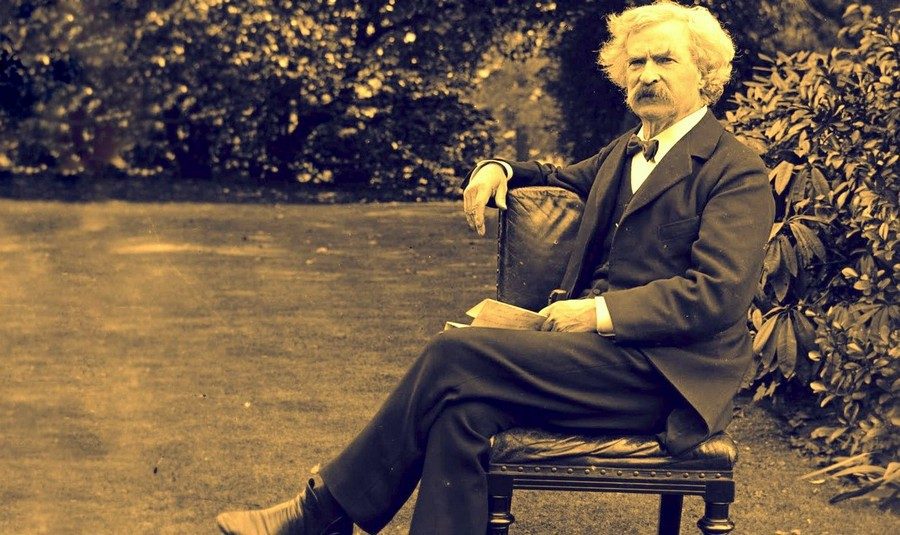Declaration made in 1660 to King Charles II, as published by Quaker.org
Our principle is, and our Practice have always been, to seek peace and ensue it and to follow after righteousness and the knowledge of God, seeking the good and welfare and doing that which tends to the peace of all. We know that wars and fightings proceed from the lusts of men (as Jas. iv. 1-3), out of which lusts the Lord hath redeemed us, and so out of the occasion of war. The occasion of which war, and war itself (wherein envious men, who are lovers of themselves more than lovers of God, lust, kill, and desire to have men’s lives or estates) ariseth from the lust. All bloody principles and practices, we, as to our own particulars, do utterly deny, with all outward wars and strife and fightings with outward weapons, for any end or under any pretence whatsoever. And this is our testimony to the whole world.
And whereas it is objected:
‘But although you now say that you cannot fight nor take up arms at all, yet if the spirit do move you, then you will change your principle, and then you will sell your coat and buy a sword and fight for the kingdom of Christ.’
Answer:
As for this we say to you that Christ said to Peter, ‘Put up thy sword in his place’; though he had said before that he that had no sword might sell his coat and buy one (to the fulfilling of the scripture), yet after, when he had bid him put it up, he said, ‘He that taketh the sword shall perish with the sword.’ And further, Christ said to Peter, ‘Thinkest thou, that I cannot now pray to my Father, and he shall presently give me more than twelve legions of angels?’ And this might satisfy Peter, after he had put up his sword, when he said to him that he took it, should perish by it, which satisfieth us. (Luke xxii,36; Matt. xxvi.51- 53). And in the Revelation it’s said, ‘He that kills with the sword shall perish with the sword: and here is the faith and the patience of the saints.’ (Rev. xiii.10). And so Christ’s kingdom is not of this world, therefore do not his servants fight, as he told Pilate, the magistrate who crucified him. And did they not look upon Christ as a raiser of sedition? And did not he say, ‘Forgive them’? But thus it is that we are numbered amongst fighters, that the Scriptures might be fulfilled.
That the spirit of Christ, by which we are guided, is not changeable, so as once to command us from a thing as evil and again to move unto it; and we do certainly know, and so testify to the world, that the spirit of Christ, which leads us into all Truth, will never move us to fight and war against any man with outward weapons, neither for the kingdom of Christ, nor for the kingdoms of this world.
First:
Because the kingdom of Christ God will exalt, according to the promise, and cause it to grow and flourish in righteousness. ‘Not by might, nor by power [of outward sword], but by my spirit, said the Lord.’ (Zech.iv.6) SO those that use any weapon to fight for Christ, or for the establishing of his kingdom or government, both the spirit, principle and practice in that we deny.
Secondly:
And as for the kingdoms of this world, we cannot covet them, much less can we fight for them, but we do earnestly desire and wait, that by the Word of God’s power and its effectual operation in the hearts of men, the kingdoms of this world may become the kingdoms of the Lord, and of his Christ, that he may rule and reign in men by his spirit and truth, that thereby all people, out of all different judgements and professions may be brought into love and unity with God, and one with another, and that they may all come to witness the prophet’s words who said, ‘Nation shall not lift up sword against nation, neither shall they learn war any more.’ (Isa.ii.4; Mic.iv.3)
So, we whom the Lord hath called into the obedience of his Truth have denied wars and fightings and cannot again any more learn it. This is a certain testimony unto all the world of the truth of our hearts in this particular, that as God persuadeth every man’s heart to believe, so they may receive it. For we have not, as some others, gone about cunningly with devised fables, nor have we ever denied in practice what we have professed in principle, but in sincerity and truth and by the word of God have we laboured to be made manifest unto all men, that both we and our ways might be witnessed in the hearts of all people.
And whereas all manner of evil hath been falsely spoken of us, we hereby speak forth the plain truth of our hearts, to take away the occasion of that offence, that so we being innocent may not suffer for other men’s offences, nor be made a prey upon by the wills of men for that of which we were never guilty; but in the uprightness of our hearts we may, under the power ordained of God for the punishment of evildoers and for the praise of them that do well, live a peaceable and godly life in all godliness and honesty. For although we have always suffered. and do now more abundantly suffer, yet we know that it’s for righteousness’ sake; ‘for all our rejoicing is this, the testimony of our consciences, that in simplicity and godly sincerity, not with fleshly wisdom but by the grace of God, we have had our conversation in the world’ (2 Cor.i.12), which for us is a witness for the convincing of our enemies. For this we can say to the whole world, we have wronged no man’s person or possessions, we have used no force nor violence against any man, we have been found in no plots, nor guilty of sedition. When we have been wronged, we have not sought to revenge ourselves, we have not made resistance against authority, but wherein we could not obey for conscience’ sake, we have suffered even the most of any people in the nation. We have been accounted as sheep for the slaughter, persecuted and despised, beaten, stoned, wounded, stocked, whipped, imprisoned, haled out of synagogues, cast into dungeons and noisome vaults where many have died in bonds, shut up from our friends, denied needful sustenance for many days together, with other like cruelties.
And the cause of all this our sufferings is not for any evil, but for things relating to the worship of our God in obedience to his requirings of us. For which cause we shall freely give up our bodies a sacrifice, rather than disobey the Lord. For we know, as the Lord hath kept us innocent, so he will plead our cause, when there is none in the earth to plead it. So we, in obedience to his truth, do not love our lives unto the death, that we may do his will, and wrong no man in our generation, but seek the good and peace of all men. And he that hath commanded us that we shall not swear at all (Matt. v.34), hath also commanded us that we shall not kill (Matt. v.21), so that we can neither kill men, nor swear for or against them. And this is both our principle and practice, and hath been from the beginning, so that if we suffer, as suspected to take up arms or make war against any, it is without ground from us; for it neither is, nor ever was in our hearts, since we owned the truth of God; neither shall we ever do it, because it is contrary to the spirit of Christ, his doctrine, and the practice of his apostles, even contrary to him for whom we suffer all things, and endure all things.
And whereas men come against us with clubs, staves, drawn swords, pistols cocked, and do beat, cut, and abuse us, yet we never resisted them, but to them our hair, backs and cheeks have been ready. It is not an honour to manhood nor to nobility to run upon harmless people who lift not up a hand against them, with arms and weapons.
Therefore consider these things ye men of understanding; for plotters, raisers of insurrections, tumultuous ones, and fighters, running with swords, clubs, staves and pistols one against another, we say, these are of the world and hath its foundation from this unrighteous world, from the foundation of which the Lamb hath been slain, which Lamb hath redeemed us from the unrighteous world, and we are not of it, but are heirs of a world in which there is no end and of a kingdom where no corruptible thing enters. And our weapons are spiritual and not carnal, yet mighty through God to the plucking down of the strongholds of Satan, who is author of wars, fighting, murder, and plots. And our swords are broken until ploughshares and spears into pruning; hooks, as prophesied of in Micah iv. Therefore we cannot learn war any more, neither rise up against nation or kingdom with outward weapons, though you have numbered us among the transgressors and plotters. The Lord knows our innocency herein, and will plead our cause with all men and people upon earth at the day of their judgement, when all men shall have a reward according to their works …
O friends offend not the Lord and his little ones, neither afflict his people, but consider and be moderate, and do not run hastily into things, but mind and consider mercy, justice, and judgement; that is the way for you to prosper and get the favour of the Lord. Our meetings were stopped and broken up in the days of Oliver, in pretence of plotting against him; and in the days of the Parliament and Committee of Safety we were looked upon as plotters to bring in King Charles, and now we are called plotters against King Charles. Oh, that men should lose their reason and go contrary to their own conscience, knowing that we have suffered all things and have been accounted plotters all along, though we have declared against them both by word of mouth and printing, and are clear from any such things. We have suffered all along because we would not take up carnal weapons to fight withal against any, and are thus made a prey upon because we are the innocent lambs of Christ and cannot avenge ourselves. These things are left upon your hearts to consider, but we are out of all those things in the patience of the saints, and we know that as Christ said, ‘He that takes the sword, shall perish with the sword.’ (Matt. xxvi.52; Rev.xiii.10)
This is given forth from the people called Quakers to satisfy the King and his Council, and all those that have any jealousy concerning us, that all occasion of suspicion may be taken away and our innocency cleared.
Given forth under our names, and in behalf of the whole body of the Elect People of God who are called Quakers.
Postscript: Though we are numbered with plotters in this late Proclamation and put in the midst of them and numbered amongst transgressors and have been given up to all rude, merciless men, by which our meetings are broken up, in which we edified one another in our holy faith and prayed together to the Lord that lives for ever, yet he is our pleader for us in this day. The Lord saith, ‘They that feared his name spoke often together’, as in Malachi, which were as his jewels. And for this cause and no evil doing, are we cast into holes, dungeons, houses of correction, prisons, they sparing neither old nor young, men or women, and just sold to all nations and made a prey to all nations under pretence of being plotters, so that all rude people run upon us to take possession. For which we say, ‘The Lord forgive them that have thus done to us,’ who doth and will enable us to suffer. And never shall we lift up a hand against any man that doth thus use us, but that the Lord may have mercy upon them, that they may consider what they have done. For how is it hardly possible for them to require us for the wrong they have done to us, who to all nations have sounded us abroad as plotters? We who were never found plotters against any power or man upon the earth since we knew the life and power of Jesus Christ manifested in us, who hath redeemed us from the world, and all works of darkness, and plotters that be in it, by which we know our election before the world began. So we say the Lord have mercy upon our enemies and forgive them, for that they have done unto us.
Oh, do as you would be done by. And do unto all men as you would have them do unto you, for this is but the law and the prophets.
And all plots, insurrections, and riotous meetings we do deny, knowing them to be of the devil, the murderer, which we in Christ, which was before they were, triumph over. And all wars and fightings with carnal weapons we do deny, who have the sword and the spirit; and all that wrong us we leave them to the Lord. And this is to clear our innocency from that aspersion cast upon us, that we are plotters.
George Fox Gerald, Roberts Henry Fell, Richard Hubberthorn, John Boulton, John Hinde, John Stubbs, Leonard Fell, John Furley Jnr, Francis Howgill, Samuel Fisher, Thomas Moore
Bruce Gerencser, 68, lives in rural Northwest Ohio with his wife of 47 years. He and his wife have six grown children and sixteen grandchildren. Bruce pastored Evangelical churches for twenty-five years in Ohio, Texas, and Michigan. Bruce left the ministry in 2005, and in 2008 he left Christianity. Bruce is now a humanist and an atheist.
Your comments are welcome and appreciated. All first-time comments are moderated. Please read the commenting rules before commenting.
You can email Bruce via the Contact Form.
Share This Post On Social Media:











